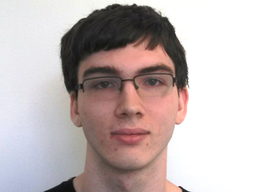PhD Defense: Richard Brewster
Location
Physics : 401
Date & Time
April 23, 2019, 1:00 pm – 3:00 pm
Description
ADVISOR: Dr. James Franson
TITLE: Compensating for the Effects of Decoherence in Quantum States
ABSTRACT: Quantum information is a field with many potential applications in future technology. One of the major challenges in the practical implementation of quantum information protocols is the difficulty in synthesizing and maintaining controllable quantum systems. One of the reasons for this is because quantum systems are susceptible to decoherence that reduces the quality of the quantum state of a system. There have been several advances toward mitigating this decoherence such as the design of codes to combat errors due to incoherent quantum evolution, known as quantum error correction, and the design of novel quantum states that are less susceptible to decoherence. In this dissertation, we provide a rigorous analysis of the mechanisms that introduce decoherence into select quantum states and propose methods to compensate for it. We find that squeezing a macroscopic quantum optical state known as a Schrödinger cat state can reduce the amount of decoherence introduced by optical parametric amplification. We also find that noiseless amplification can be used to compensate for decoherence due to polarization dependent loss in single-photonic polarization qubits. In the process of understanding decoherence and its compensation we also introduce new and exciting mathematical and physical concepts such as delta functions that admit complex arguments, known as the generalized delta function, and a noiseless attenuator made using an optical parametric amplifier.
TITLE: Compensating for the Effects of Decoherence in Quantum States
ABSTRACT: Quantum information is a field with many potential applications in future technology. One of the major challenges in the practical implementation of quantum information protocols is the difficulty in synthesizing and maintaining controllable quantum systems. One of the reasons for this is because quantum systems are susceptible to decoherence that reduces the quality of the quantum state of a system. There have been several advances toward mitigating this decoherence such as the design of codes to combat errors due to incoherent quantum evolution, known as quantum error correction, and the design of novel quantum states that are less susceptible to decoherence. In this dissertation, we provide a rigorous analysis of the mechanisms that introduce decoherence into select quantum states and propose methods to compensate for it. We find that squeezing a macroscopic quantum optical state known as a Schrödinger cat state can reduce the amount of decoherence introduced by optical parametric amplification. We also find that noiseless amplification can be used to compensate for decoherence due to polarization dependent loss in single-photonic polarization qubits. In the process of understanding decoherence and its compensation we also introduce new and exciting mathematical and physical concepts such as delta functions that admit complex arguments, known as the generalized delta function, and a noiseless attenuator made using an optical parametric amplifier.
